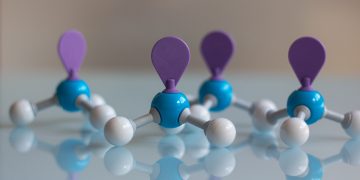Seachange Group LLC (Seachange) said in a newsletter that testing of its new Eco-Hybrid Fuel (EHF) is going well.
SeaChange Group has developed Eco-Hybrid Fuel, a patented glycerol-diesel emulsion technology to provide lower operational costs and improvements to emissions (SOx, NOx, PM), without requiring any engine modifications. EHF is composed of an emulsified blend of glycerol and diesel fuels. Glycerol as a fuel additive has benefits both economic and environmental.
Currently, a pilot processor is under construction, which will provide sufficient quantities of fuel for testing in work vessels in 2014. Sales to early adopters are planned for early 2015.
|
Why glycerol? Cost: Glycerol is a by byproduct of biodiesel production. As biodiesel production increases the supply of glycerol increases and therefore the cost of glycerol decreases. Composition: Glycerol is an oxygen containing molecule. Under proper combustion conditions, the addition of glycerol to a fuel reduces NOx, SOx, PM emissions. Lubricity: Glycerol is a lubricant with high viscosity. Both of these properties make it an ideal additive for use in diesel engines. Environmental Benefits: Glycerol isolated from biodiesel production therefore has a low carbon footprint(same as biodiesel). Glycerol is 100% renewable and likely to meet the U.S. Renewable Fuel Standard (RFS2) definition RIN D4 for green house gas emission reductions. Glycerol is non-toxic. Sustainable: Glycerol production is tied to the domestic production of biodiesel. Therefore using glycerol as fuel reduces our dependence on foreign oil. |
Source: Seachange Group
In the origin, I was forthright with you propecia before and after has changed my life. It has become much more fun, and now I have to run. Just as it is improbable to sit.






























































